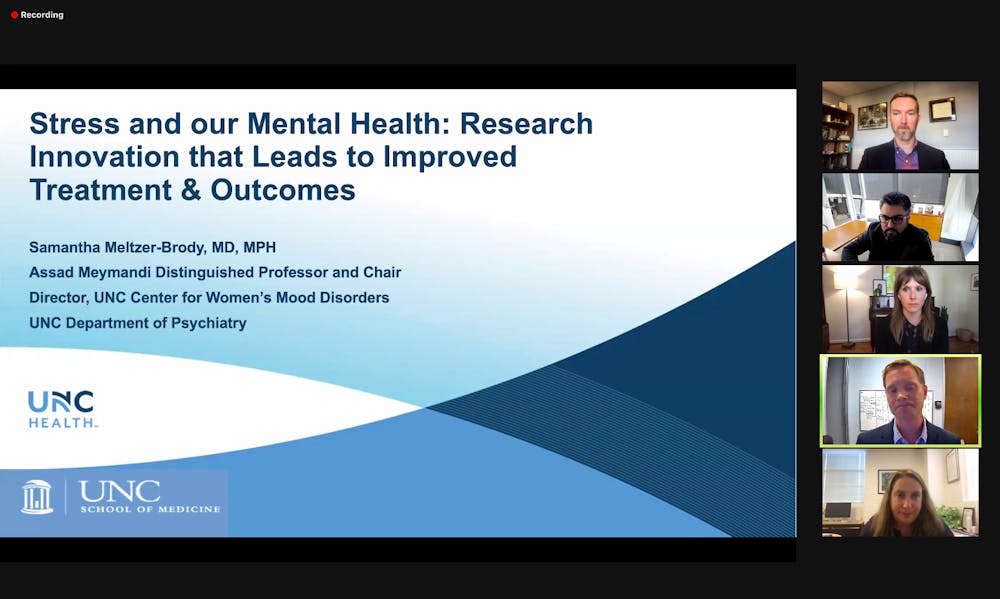As a part of the University Research Week series, the UNC School of Medicine hosted a panel discussion with researchers studying stress and treatments for mental health conditions.
The panel on Monday, titled "Stress and our Mental Health: Research Innovation that Leads to Improved Treatment & Outcomes," featured Dr. Samantha Meltzer-Brody, chairperson of the UNC Department of Psychiatry, Crystal Schiller, co-director of the Perinatal Psychiatry Program, and Jose Rodriguez-Romaguera, co-director of the Carolina Stress Initiative.
Each of them has been researching solutions to address mental health through researching treatment techniques for different demographics of people.
Meltzer-Brody said the pandemic has markedly worsened the overall mental health of people in the United States.
“This is all going to require a massive and new effort,” she said. “And will take all of us working together for new funding and resources and new ideas.”
Meltzer-Brody’s research centers around the development of a new drug to treat postpartum depression — behavioral changes that can happen in some women after giving birth. She and her team were approached to be part of an open study to research the impacts of the neuroactive steroid Allopregnanolone on postpartum depression.
“The timeline was rapid, it was exciting,” Meltzer-Brody said. "This is sort of the first patients done and the papers published, leading to FDA approval in March of 2019. And interestingly, within two weeks of March of 2019, it was the second drug, right after intranasal ketamine, to be approved."
Meltzer-Brody also helped develop an app, Mom Genes, to bring science to anyone with a smartphone. This app has garnered data samples that will be used for a genetic study on postpartum depression, she said.
Rodriguez-Romaguera discussed the neuroscience research he's done to highlight how stress impacts the nervous system. He studies how neurons encode anxiety and stress-related behavior by analyzing the brain activity of mice in anxiety-inducing situations.




